

It's a puzzle platformer. And running, rolling, pulling levers and a whole lot of jumping compose most of the gameplay. Your character get some special abilities later in the game including possession of enemies, but you will spend most of the game running for your life. What sets this game apart from other puzzle platformers is its endless charm. The world of Oddworld is a fantastic realm where the grotesque industrial meets alien landscapes. Our unlikely hero learns that after the extinction of several species at the hand of the food corporation for which he works, his species is next on the list. His escape turns into a shamanistic journey to rediscover his people's unique abilities and finally save them from becoming the next product on the shelf. What this game lacks in graphics it makes up for in sound. The cries of the different creatures, the chanting of the main character and the dynamic changes to the music enhanced an already atmospheric experience.
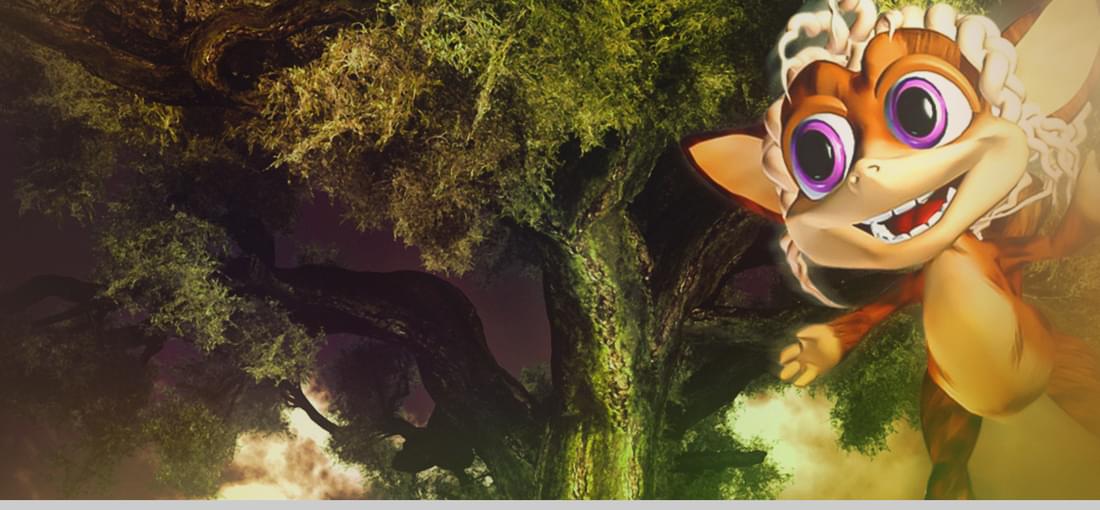
I hesitate to call "Creatures" a game. It is more akin to a toy or the world's most demanding goldfish. The furry creatures who roam on the screen have enough intelligence to disobey your commands, but not enough to obey them. You are given enough tools to spend hours in teaching and communicating with them, yet they never achieve the independence these tools are supposed to grant them. The more successful you are in keeping your creatures alive and breeding, the more difficult and time consuming it is to keep them this way. The downward spiral to total extinction become steeper with every newly born, as it becomes another burden rather then a hurdle. Creatures fails where it matters most. Despite having no direct way to control and command the creatures, they require just these to function. Trying to prevent them from dying or straying to far to survive or even just keeping them healthy enough to foster the next generation, is a frustrating experience that rarely bears fruit. The indirect means of communication and tutoring are just not enough, or perhaps it is the creatures who lack the AI to benefit from your instructions for more then the immediate situation. It's not fun or even viable as a game, but even as a simulation it misses the point. No matter how educated or capable your creature grows up to be, he still ends up requiring your constant attention. A task that can become as dull as it is frustrating when your creature decides to stay at a certain spot for hours, only to die mysteriously the moment you take your eyes off the screen. There's potential there, yes. There is vision and sophistication that is sadly lacking in most Computer Games. But all of these are squandered on poor execution that will keep you interested for a good half and hour before being moved to the virtual attic to spend the rest of eternity gathering dust.
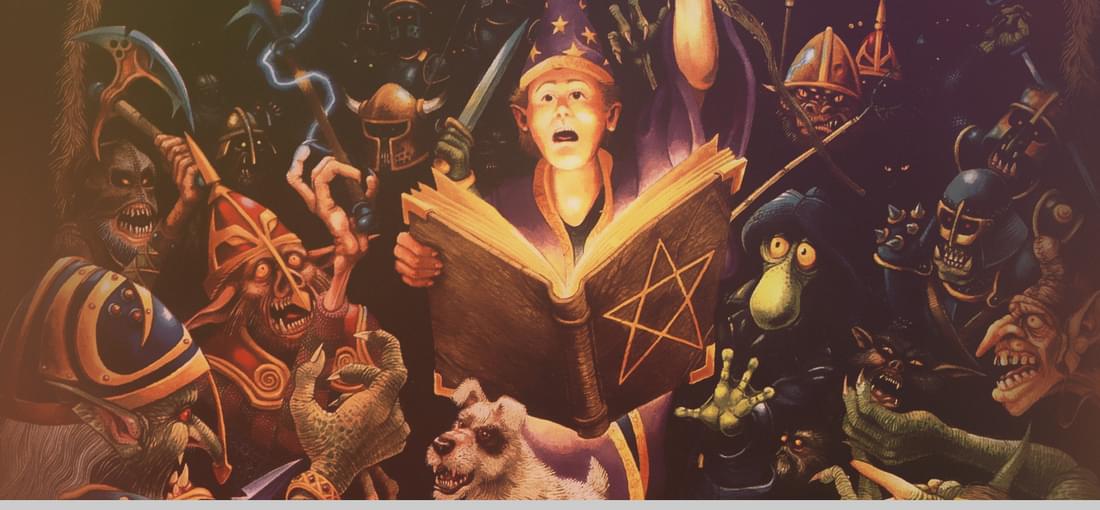
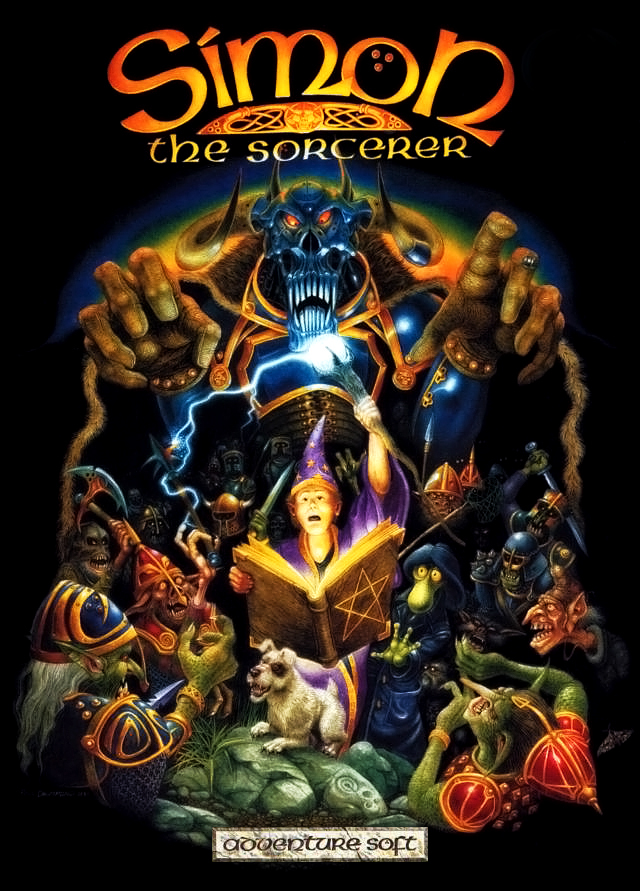
I was no more older then eight when I played Simon after borrowing it from my neighbor on a whim. I knew adventure games, sure, but I never could have played them for more then ten minutes without getting bored. With most adventure games containing oodles of English text, and English not being my mother's tongue, who could blame me? But Simon struck a cord. Sure it was accessible to me, what with it being translated to Hebrew. But it was more then that, it was a game that had fun written all over it. A simple interface, and limiting your progression through the first few puzzles, it was a perfect introduction to a genre of games I would grow to adore. But I kept replaying it, even to this day there is a wealth of enduring charm to Simon. Chris Barrie of Red Dwarf fame, does an excellent job in voicing the title character. And manages to keep it balance between youthful innocence to cruel cynicism , an attitude that never cease to entertain. The world of Simon is a standard fantasy cliche being ridiculed by its own inhabitants. And the well written script does a good job of making you chuckle every few minutes. And that's what this game is all about. Whether it uses visual spastic humor or just a well timed joke, what happens on the screen never bores you. Some of the voice acting of one or two of the minor characters can be a bit grating at times, but all is forgiven when a talking tree teaches you the magic word "sausages" or when two demons ask you to preform an exorcism on them. A few flaws do keep the game from being all that it can be. And the major of these is that some of the puzzles relay on pixel hunting to the point of frustration. I remember vividly being stuck for more then a week at certain point. While I had already figured out the puzzle, I had not implemented the solution on the exact spot required. A spot which was barely a few pixels large and turned a relatively simple puzzle into a frustrating experience. Some may claim that Simon pales in comparison to Lucas Art's Adventure games. Which seem to play on the same type of humor and often presents puzzles and scripts which surpass Simon's in excellence. To those I say that the whole is greater then the sum of it's parts. Simon may not be perfect, but it does so many things right, its hard not to enjoy even its weakest parts.
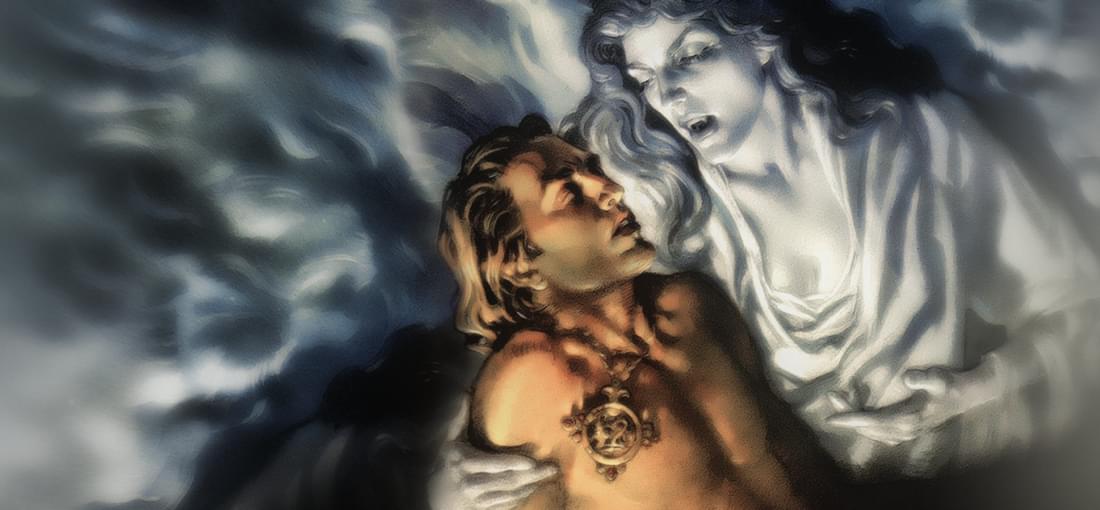
I was unfortunate enough to miss the first two Gabriel Knight games, but their glory reached even my young ears. Which was what drove me to buy this title when it came out. I have fond memories of it. Tim Curry's acting is as entertaining as ever and the mystery plot (about vampires in rural France) keeps you interested. But the game's real charm is in its characters. The cast of suspicious treasure-hunters roam around, each with their own motives and secrets and a major part of the game is spent in uncovering these motivations. Whether you are breaking into their rooms or casually talking to them, you are bound to uncover suspicious evidence that will drive you to form theory after theory. Sadly, the game starts to loose it's charm when abandoning this formula towards the end. The mystery proves to be too cliche' and the ending pits you against a foe that appears and disappear for the sake of a climax. Perhaps most memorable is the love story between the title character and his assistant, manages to create tension, interest and emotion all through out the game. The 3D environment fail to impress as they once did. And it's clear that unlike 2D games, 3D games have some trouble preserving their visual charm. Yet for those who can close their eyes to such flaws, GK3 is a solid adventure game that offers fascinating puzzles, excellent voice acting and a decent script.
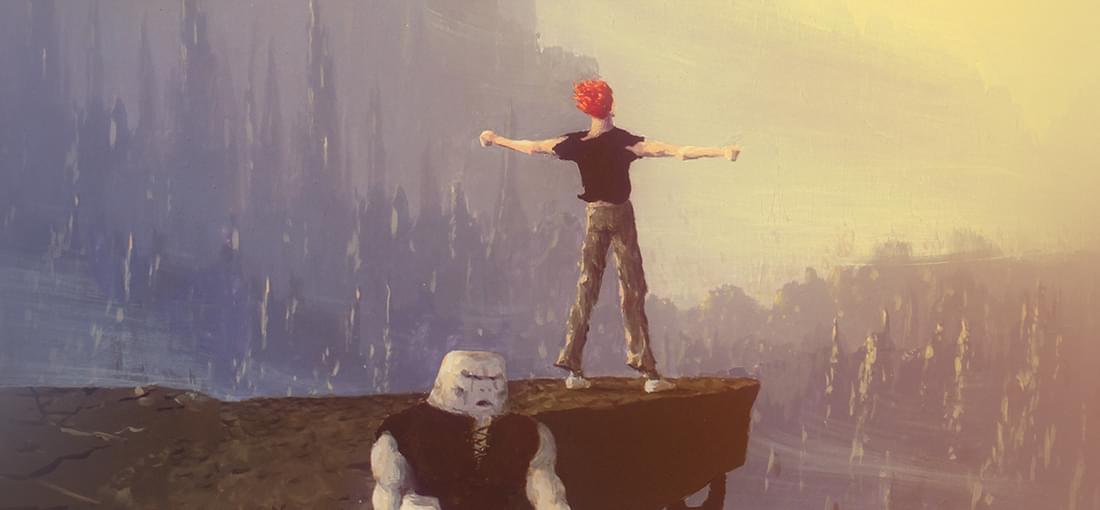
Another World is one of those games you never forget. It is elegant in almost every way. Gameplay is simple yet allows complex maneuvers. And the story manages to convey a spectrum of emotions without a single line of dialog. At it's heart it is more a puzzle then a platformer and it is too damn short. That's part of its charm, yes. But all the people I know who played it, wanted more. Perhaps that is as good a recommendation as any game would aspire to.
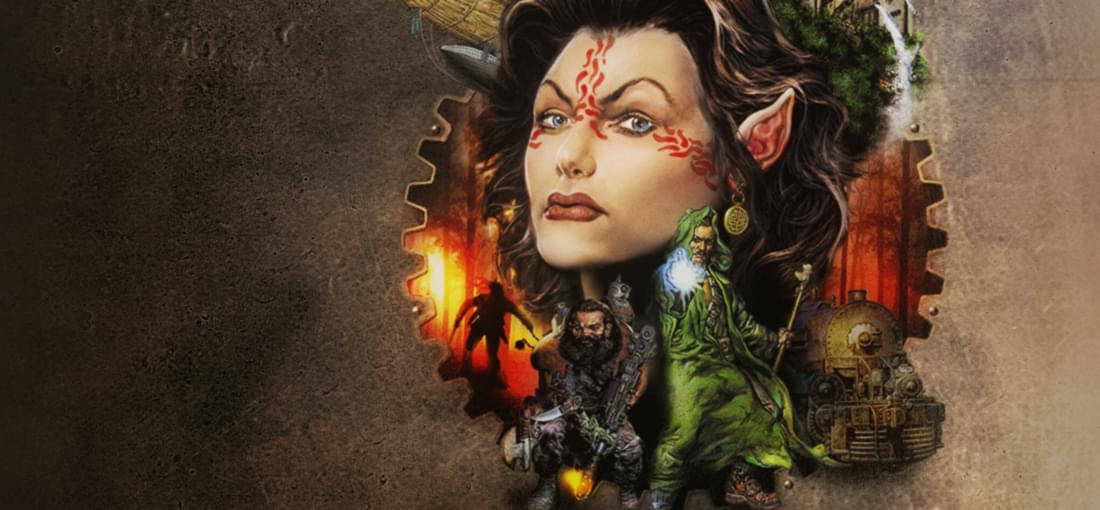
Arcanum is not for everyone, but those who enjoy the carefully crafted design that made the original Fallout a masterpiece will not find a game as ambitious. Arcanum is a steam-punk role playing game set in a Dungeons & Dragons style world in the grip of an industrial revolution. Science, industry and capital enable men women and ogre to achieve what one - only magicians could do. Arcanum is a complex world of political upheaval, class struggle, rampant racism, religious reform and social changes. There is a big bad guy, yes. There is a fresh hero destined for greatness. There are ancient secrets and people losing their wedding rings in the sewer. But at it's heart it's a breathing world that is ready to be changed by your actions. And indeed few things are as rewarding as reading about your own exploits in the local news paper. It has it's flaws. Chief among them is the battle system. It can be played in turns or real-time but each of those lack something. The Turn-based combat is cumbersome and too few combat animations make it dull. Real-time is useful for battles where you have a melee weapon and the enemy is another rat. But I wouldn't recommend it for battles that require even a little more tactic. The opening is another big hurdle. It's filled with creatures ready to mince you if you are not playing a combat centric character. Sometimes it's better to just run away and reach the next town rather then spend an agonizing hour trying to outfight a wild boar. Level cap is a double edged sword in Arcanum. Every NPC is scaled on a level between 1 and 50. And your character is not exempted. If you build a character that is invested in too many areas, you might discover that the game is becoming more and more difficult. A purely magical or technological character will have an easier time then a jack of all trades. This is not a game where you can wander around doing random battles to surmount every obstacle. Despite it's flaws, Arcanum remains one of my favorite games. Every npc is a character, every quest is well crafted. Every companion has a story to tell and everyone can die. But there are few games where one of the ways to beat the end boss is a existential debate. Few games where you are offered so much REAL freedom. Few games where you can roam through trash to build an arsenal of grenades. Few games where the designers are waiting for your every action with a prepared response. If you loved Fallout for more then it's exploding head combat, give this a shot.
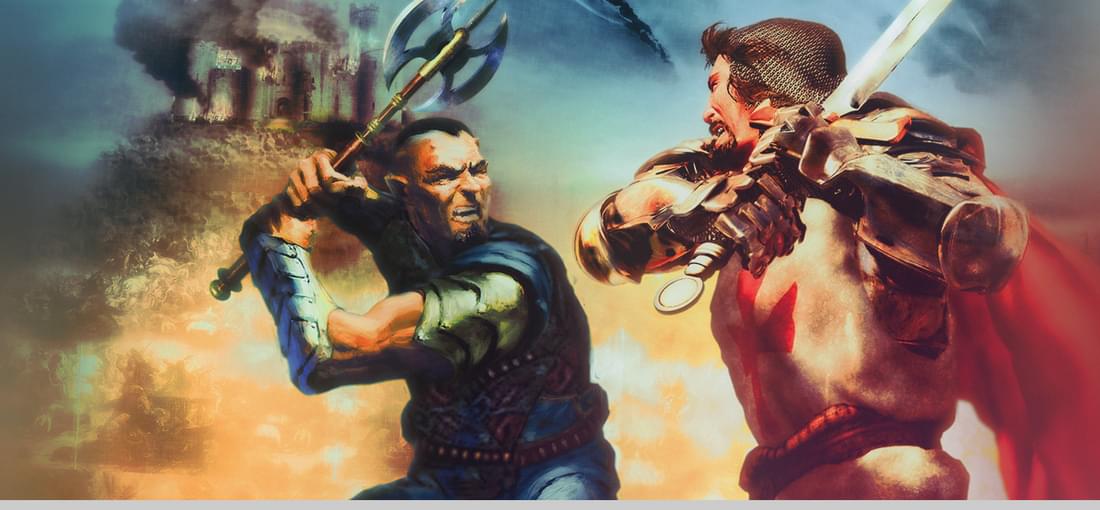
Lionheart has potential. But that's about all it has. What could have been an interesting and original RPG turns out to be half a game. While the first few hours of the game have some depth and interest in them, once you exit the city it's just fighting. And fighting is not Lionheart strong point. Its strong point is the interesting setting, the historical twist and mixing it up with historical characters like De-Vinchi and Machiavelli. But sadly, these moments are too few. Maybe with an added year of development it could have become a good game, as it is, it's very far from it.